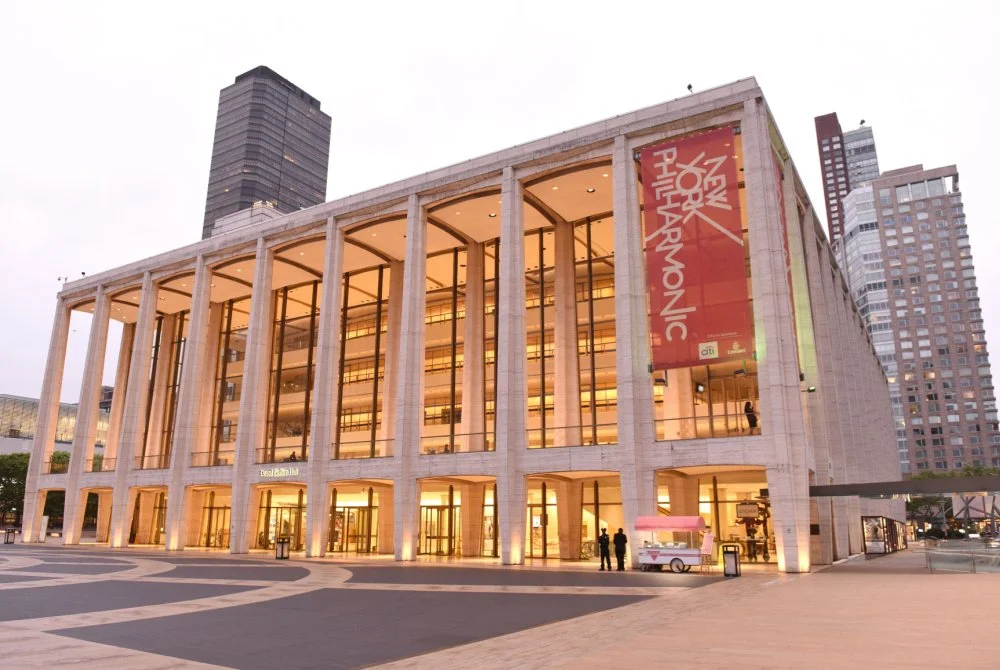The New York Community Trust: Investing in Early Childhood and Much More
/Photo: ISO200/shutterstock
We keep a close eye on the New York Community Trust, one of the oldest and largest community foundations in the United States. Making grants across a range of issues, NYCT plays a central role in supporting New York City's large nonprofit sector. Its most recent round of grantmaking, announced in June, is a case in point: The foundation approved $13.2 million in grants to dozens of organizations—73 in all—working in education, health care, human services, the environment, and the arts. Areas of strong focus include youth, immigrants, and civic engagement, with specific pushes to help young immigrants and children in low-income families, support journalism, and increase family engagement and voice within schools.
As we’ve reported, the era of Trump is a tricky time for community foundations, many of which are trying to carry out rapid-response grantmaking while addressing long-term priorities and serving donors who may have diverse political leanings. The latest round of NYCT grants can be seen as both responsive to current needs and tied to core priorities.
As part of the recent grants, NYCT announced a partnership with the Altman Foundation and the United Hospital Fund to fund a program called Partnerships for Early Childhood Development, which intends to connect pediatric providers more effectively with community groups.
“The New York Community Trust has a long history of making grants to help the youngest New Yorkers,” Natasha Lifton, NYCT senior program officer and co-chair of the fund, tells us. These efforts have included collaboratively funding programs to remove dangerous chemicals from baby products, elevate the early education offered in home-based child care programs, and improve foster care.
“We’re pleased to support this project as it shows that we practice what we preach: collaboration,” Irfan Hasan, NYCT program director, says. He adds, “We are particularly pleased to support this effort using our Katherine Sloan Pratt Fund. We believe Ms. Pratt, who passed away in 1968, would be proud of how her fund in the trust, which was established to support hospitals, is being used to address issues relevant to today’s New York families.”
Connecting families to early childhood programs, affordable and nutritious food, parental counseling and support, and other social services will be the foci of the Partnerships for Early Childhood Development program. Grants totaling $160,000 go to Mount Sinai Hospital, New York University School of Medicine, New York-Presbyterian/ Columbia, and several other medical facilities. The United Hospital Fund will also receive $40,000 to “coordinate a learning collaborative with the partnerships and evaluate this effort.”
NYCT is also investing in young immigrants. It awarded $180,000 to Internationals Network for Public Schools to train educators to give newly arrived immigrant students academic, social, and emotional support. It also awarded a $98,000 grant to Columbia University’s Teachers College to help it identify English language learners who have speech-language disabilities, and a $75,000 grant to Community-Word Project to boost arts education for English language learners in Queens and Brooklyn schools.
Looking out for people who have immigrated to the U.S. is one of the causes that NYCT has returned to throughout its more than 90 years of grantmaking, particularly in times of increased threat to these populations. In 1987, it created a Fund for New Citizens in response to the welfare reform law, which targeted immigrants, including with new restrictions on services like Medicaid and food stamps. This fund helped "many small immigrant organizations offer legal, policy, and advocacy services.” And in 2017, in response to the Trump administration's multifaceted campaigns against immigrant standings and rights, NYCT launched the Liberty Fund to support legal assistance, advocacy efforts for sanctuaries, citizen action workshops, safe havens for immigrants, and other services.
“This dynamic fund aims to make sure that all New Yorkers, regardless of country of origin or any other characteristic can thrive here,” Lorie Slutsky, president of NYCT, said of the Liberty Fund. Applicants to this fund are also invited to submit proposals to NYCT’s regular grants program, which is further evidence of the foundation's ongoing commitment to these issues. The recent immigrant-focused recipients listed above further illustrate this point.
A third focus of NYCT’s June grantmaking round was on encouraging civic participation. It highlighted two grants within this realm, one being $100,000 to New York Public Radio for “fact-based reporting on local issues,” which the foundation sees as imperative in a time when the term “fake news” is increasingly bandied about. It also supported nonprofit new services like NYPR in 2017. NYCT is backing family engagement in school communities as well, through giving $120,000 to the Participatory Budgeting Project for high school students and parents.
Similarly, one of the oldest collaborative funds housed at NYCT, the Donors’ Education Collaborative, announced $740,000 at the start of 2018 to “help students, teachers, and parents advocate for their needs from City Hall to the State Capitol.” Shawn V. Morehead, program director for education at NYCT and co-chair of the Donors' Education Collaborative, said a focus of this undertaking was to get students involved as advocates "for what they believe in.” The new funding for participatory budgeting in school communities lines up nicely with this expressed NYCT priority.
So, while the causes NYCT is currently choosing to back have strong contemporary poignancy, they also largely fall into areas of ongoing focus and commitment for this foundation, which gives away more than $150 million in New York City and its suburbs each year.



















